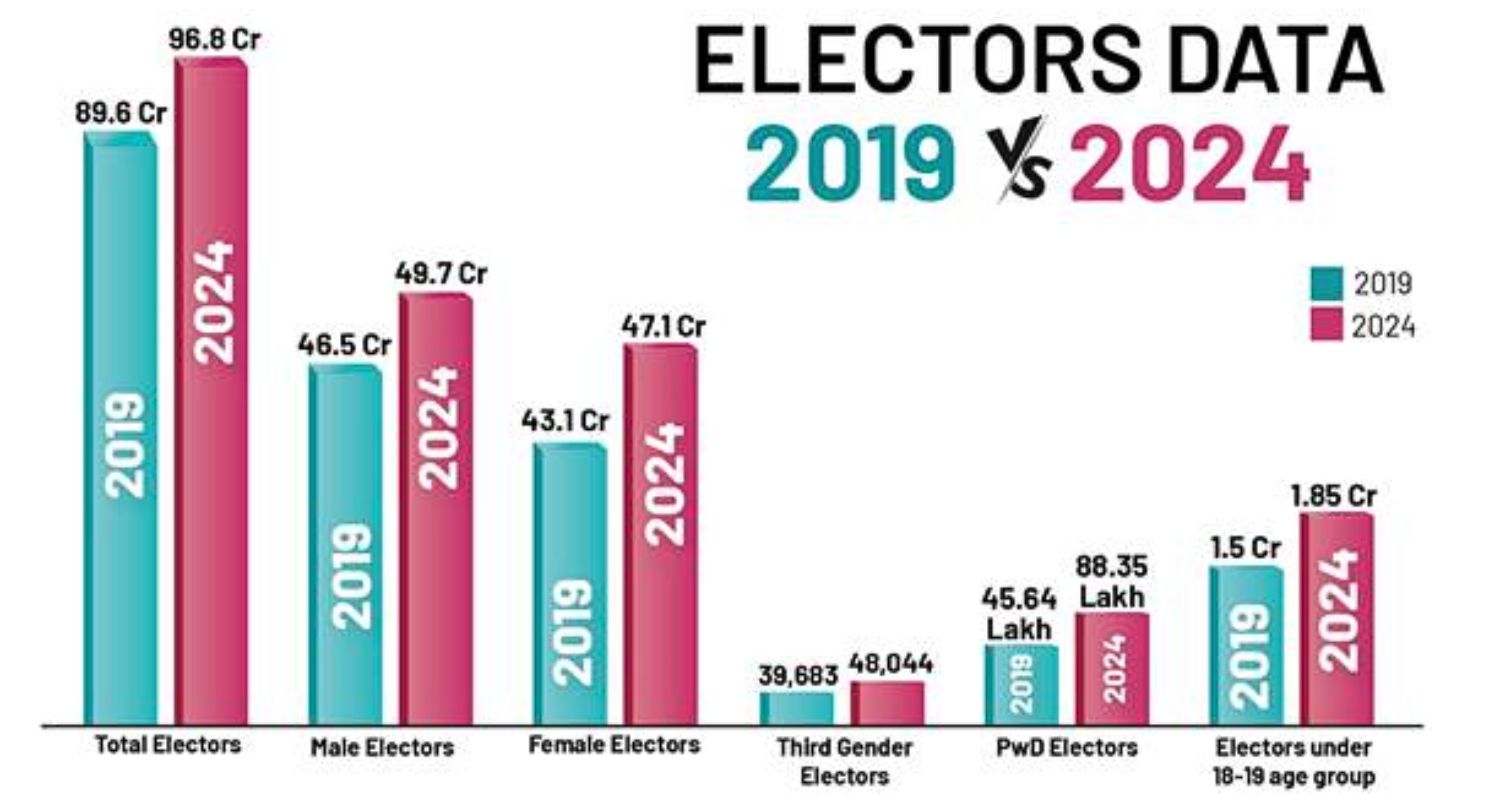An SBI Research report has revealed that targeted social welfare schemes have significantly bolstered female voter turnout in India, with a record 1.8 crore additional women exercising their franchise in the 2024 Lok Sabha elections compared to 2019.
The study highlights the transformative impact of initiatives such as sanitation programmes, the Pradhan Mantri Awas Yojana (PMAY), Mudra loans, and literacy drives, attributing the surge in turnout to these measures.

Contributors to the rise
- Literacy gains: A 1% rise in literacy led to 45 lakh more women voting, emphasising the direct correlation between education and civic participation.
- House ownership: Under PMAY, where women are principal or co-owners of 74% of allocated houses, an estimated 20 lakh additional female voters joined the electorate.
- Sanitation programmes: The construction of household toilets under various schemes added around 21 lakh female voters, demonstrating the socio-political impact of improved sanitation access.
The research revealed stark differences in female voter turnout between states implementing women-focused welfare schemes and those that did not.
States with these initiatives saw an average increase of 7.8 lakh women voters, while states without them registered only 2.5 lakh on average.
The report, released on January 9, pointed out how basic amenities like electricity, clean drinking water, and income transfer schemes contribute to voter empowerment.
However, their statistical impact on voter turnout was less pronounced compared to literacy, housing, and sanitation.
Call for balanced welfare spending
While applauding the positive outcomes of these programmes, the report cautioned against unchecked welfare expansion, recommending that states cap spending on such initiatives at 1% of their Gross State Domestic Product (GSDP).
The SBI Research study also urged the Election Commission to introduce an absentee voting system for those unable to cast their vote in person, ensuring broader participation in future elections.
By addressing everyday challenges and enhancing quality of life, these women-centric welfare schemes have not only improved socio-economic conditions but also deepened democratic engagement.



